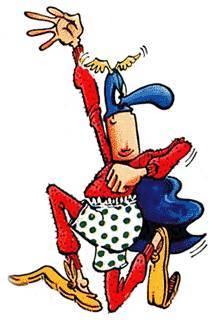History of the American Musical Theater HELP!!!!
bernadette88
Broadway Star Joined: 5/28/03
#0History of the American Musical Theater HELP!!!!
Posted: 2/6/06 at 11:22pm
Hey Guys!
I am currently doing a research paper on The History of the American Musical Theatre with a concentration of the composers Rodgers and Hammerstein, Andrew Lloyd Webber, and Stephen Sondheim. I know I read somewhere the both Sondheim and Webber had apprenticed under R and H. The main focus of the paper will be how R and H influenced them and how they went on there seperate paths with very different styles of writing! If anyone could help me find some info, or has some info stored away in their head, PLEASE let me know. I have done tons of research and only have found the history of Sondheim apprenticing with R and H.
If you would like to PM or post here that would be GREAT!
Any info regarding Musical Theatre from the beginning of R and H on is very much appreciated!
Thanks guys!
MargoChanning
Broadway Legend Joined: 4/5/04
#1re: History of the American Musical Theater HELP!!!!
Posted: 2/6/06 at 11:31pmRodgers and, especially, Hammerstein were MAJOR influences on Sondheim (with Hammerstein directly mentoring Sondheim for several years on the art of writing for the musical theatre). I have never heard of any direct contact between Rodgers and Webber (Hammerstein was long dead by the time he emerged). Not to say it didn't happen, I just never heard about it. I'm sure, though, that Webber was indirectly influenced by R&H through their shows and recordings.
Labashier
Stand-by Joined: 10/9/04
#2re: History of the American Musical Theater HELP!!!!
Posted: 2/6/06 at 11:38pmIf you can, get a hold of a copy of Sondheim's essay "Theater Lyrics" (it can be found in the book "Playwrights, Lyricists, Composers on Theater", edited by Otis L. Guerney; I got it for like five bucks on Amazon). It talks in detail about Sondheim's experience with Hammerstein.
bernadette88
Broadway Star Joined: 5/28/03
#3re: History of the American Musical Theater HELP!!!!
Posted: 2/6/06 at 11:38pmThanks Margo. Every little bit helps!!!
MargoChanning
Broadway Legend Joined: 4/5/04
#4re: History of the American Musical Theater HELP!!!!
Posted: 2/6/06 at 11:45pm
I've not read this book, but perhaps it might be helpful for you
Stephen Sondheim and Andrew Lloyd Webber : The New Musical (The Great Songwriters) (Hardcover)
runnicles
Swing Joined: 1/5/06
#5re: History of the American Musical Theater HELP!!!!
Posted: 2/10/06 at 1:54amA L Webber is NOT an American musical composer. He is in the European tradition of operetta in which the music decorates but does not propel the story. You should be looking at Kern, Porter, Rogers and Hart, Jule Styne, Kander and Ebb, Jerry Herman, etc.
#6re: History of the American Musical Theater HELP!!!!
Posted: 2/10/06 at 6:47amI remember reading an aritcle years ago where Andrew Lloyd Webber was said to have been greatly influenced by Puccini as evidenced in his music.
WOSQ
Broadway Legend Joined: 7/18/03
#7re: History of the American Musical Theater HELP!!!!
Posted: 2/10/06 at 10:20am
Richard Rodgers and Stephen Sondheim are the subjects of major biographies by the same author, Meryl Seacrest (sp?).
There was a bio of Hammerstein published in the mid-70s.
Rodgers died in 1979 and Lloyd Webber probably had little if any contact with him.
Runnicles is correct in that Lloyd Webber is not American and his shows often lack the grand passion of US written shows. (The reason Phantom works on an emotional level is Hal Prince. Evita, with the same director, does not really.)
Actually Hal Prince (who thinks operatically) is by far the larger connection for these two writers than R&H. And also if you are writing about lloyd Webber then you have to consider the various lyricists with whom he has collaborated.
There are many books on Sondheim and Prince and the best place to check might be the above-mentioned Sondheim bio's bibliography.
In addition to Amazon.com, there is also Abebook.com (I think that's it) that deals in used books. Also a decent library may have some books or quite frankly, your friendly local show queen might have the best library of all.
A final bitchy observation: Lloyd Webber is not just influenced by Puccini, he lifted a musical phrase right off the page of The Girl of the Golden West and plugged it into the Music of the Night. ["Turn your head away from the naked light of day"...etc."] Anecdotally there was supposed to be a nice chunk of change that got paid to the Puccini Foundation for that 'sampling'.
Also the homage to 'Come to Me, Bend to Me' from Brigadoon in the same score is just that. Alan Jay Lerner was originally set to do the book and lyrics to Phantom, but died before they barely got started.
#8re: History of the American Musical Theater HELP!!!!
Posted: 2/10/06 at 11:57am
"A L Webber is NOT an American musical composer. He is in the European tradition of operetta in which the music decorates but does not propel the story."
Huh? Sounded like the music definitely propelled Jesus Christ Superstar and Evita to me. Webber's not American, but it does not change the fact that he was highly influential to American musical theatre.
"Also the homage to 'Come to Me, Bend to Me' from Brigadoon in the same score is just that. Alan Jay Lerner was originally set to do the book and lyrics to Phantom, but died before they barely got started."
First I've heard of that. The song "Music of the Night" was vaulted years before the book and score for Phantom were developed. The first four notes of the song actually sound like a number of tunes. People just like to use it as ammunition, but you could make the same case for any number of songs by every composer in Broadway history. Choose any four notes in succession and you will likely find another score using those same four notes in succession. Who originated DO-DO-TI-DO as the original ending of hundreds of songs? Whoever it was should be a zillionaire by that theory.



